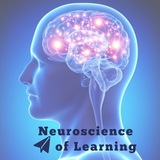tg-me.com/neurocognitionandlearning/5028
Last Update:
Researchers saw increased brain activity in the posterior superior temporal sulcus (pSTS) region when playing with dolls, for both play with a social partner and during solo doll play, but less so during solo tablet play. The pSTS region is heavily involved in and active during social and emotional processing. The findings showed that doll play activates brain regions associated with social information processing such as empathy, indicating that doll play may enable children to rehearse, use and perform these skills even when playing independently. Interestingly, this effect in the brain was similar between children displaying fewer and greater traits commonly associated with autism.
🆔@neurocognitionandlearning
BY Neuroscience of Learning

Share with your friend now:
tg-me.com/neurocognitionandlearning/5028
